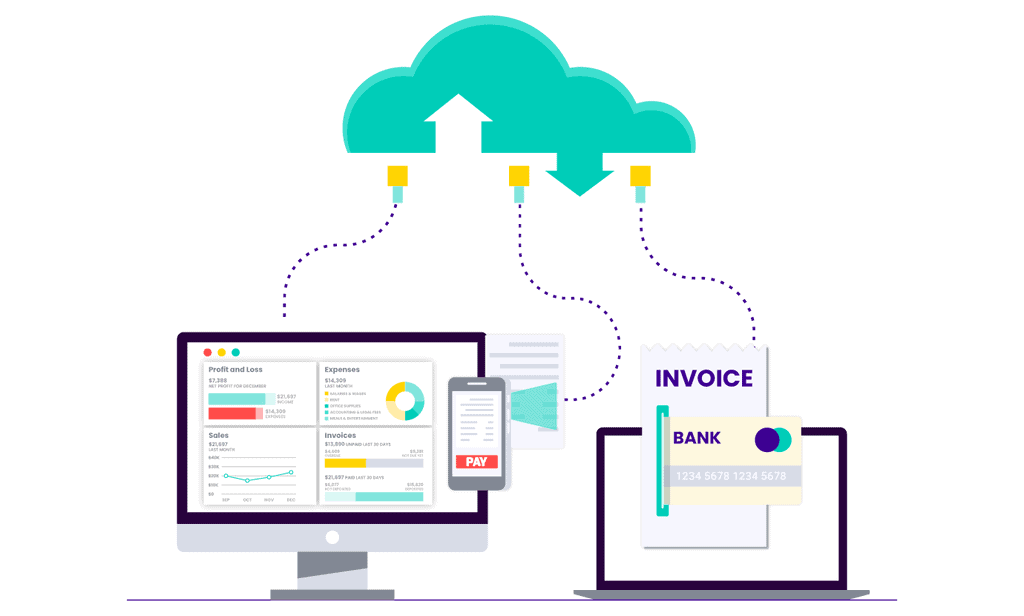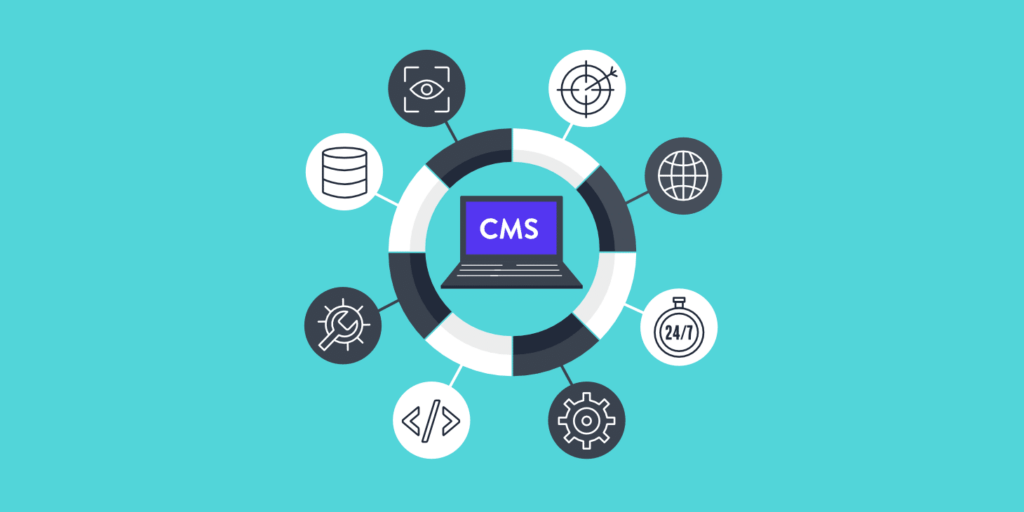
In today’s fast-changing business world, companies of all sizes and types are using different kinds of computer programs to work better and faster. One really popular choice is called “Software as a Service” or SaaS. These are special programs that live on the Internet and help companies do their tasks more easily. In this article, we will talk about the many different SaaS programs that are available.
Table of Contents
Definition of SaaS Solution

Source: emnify.com
SaaS, which stands for Software as a Service, represents a revolutionary approach in cloud computing. In this model, software applications are not stored on your personal computer but are hosted by external companies. These applications are then accessible to you through the Internet. Unlike the conventional method of installing software directly on your device, SaaS does away with that necessity. You can use the software directly from your web browser.
This brings several advantages to the table. First, it provides remarkable flexibility. You’re not tied to a single device or location. You can access your software and data from anywhere with an internet connection. Second, it offers scalability. As your needs grow, the software can easily expand to accommodate your requirements. Lastly, it’s cost-effective. You don’t need to worry about buying and maintaining expensive hardware or dealing with complex installations. Instead, you pay for the service on a subscription basis.
Types of SaaS Software
Custom Relationship Management (CRM) Software:
Custom Relationship Management (CRM) software is a revolutionary tool that transforms the way businesses manage their interactions with customers. It’s not limited by the size or type of industry. Rather, it is a versatile asset for companies ranging from startups to well-established enterprises. Esteemed platforms such as Salesforce, HubSpot, and Zoho offer sophisticated CRM systems that facilitate the seamless tracking of customer interactions, nurturing of potential leads, and the art of sales forecasting.
Imagine a tool that remembers your preferences, understands your needs, and anticipates your expectations even before you voice them. This is the power of CRM software – a tool that aids companies in fostering stronger connections with their clientele, leading to enduring success and growth.
Accounting Software:

Source: enkel.ca
When it comes to handling money matters, SaaS accounting software is like a trustworthy financial assistant. It’s designed to simplify the complex world of finances, making it easier for businesses of all sizes to manage their money. Whether you’re a small business just starting out or a big corporation, accounting software like QuickBooks, Xero, and FreshBooks come to the rescue. Accounting software providers in Malaysia offer comprehensive training and customer support to ensure that businesses can maximize the benefits of their software and stay up-to-date with changing tax laws and regulations.
These software platforms act as financial assistants, taking care of important tasks like keeping track of expenses, creating invoices, and generating financial reports. They’re like organized bookkeepers that offer real-time insights into the company’s financial health. This means businesses can make smarter decisions faster. And let’s not forget about taxes – accounting software helps keep everything on the right side of the tax rules.
Billing Solutions:
Billing software emerges as a vital asset, particularly for enterprises that operate on subscription-based models. This sophisticated software, exemplified by solutions like Chargebee and Recurly, assumes the role of an automated financial steward. Its purpose is to streamline billing processes with precision and efficiency.
Subscription-oriented businesses, offering memberships or recurring services, benefit immensely from this tool. Notably, the automation it provides significantly reduces the occurrence of errors, ensuring financial accuracy in invoicing. This level of precision is not merely a matter of convenience; it’s a cornerstone in maintaining credibility and trust among customers, which is essential for fostering lasting relationships.
Enterprise Resource Planning (ERP):

Source: croonus.com
In the domain of intricate and multifaceted business operations – ranging from manufacturing to distribution and logistics – Enterprise Resource Planning (ERP) software emerges as an indispensable tool. This strategic solution, embodied by industry leaders like SAP, Oracle, and NetSuite, assumes the role of a transformative force, seamlessly amalgamating diverse operational facets within an organization.
ERP software serves as the blueprint for the efficient management of functions such as inventory control, supply chain optimization, and personnel oversight. The outcome is a heightened level of data transparency, precision-driven workflows, and enhanced cooperation across departments.
For enterprises navigating complex operational landscapes, ERP software becomes a must. It ensures that resources are allocated judiciously, procedures are executed with finesse, and the overall performance achieves a refined cadence.
Analytics Software:
In the intricate environment of business operations, analytics software emerges as a perceptive guide, unraveling the significance hidden within complex data. Tools like Google Analytics and Tableau are able to collect data from various corners of a business, transforming it into cohesive reports that offer actionable insights.
Analytics software empowers you to make informed decisions based on data-driven foresight. This ranges from crafting compelling marketing campaigns that resonate with the audience to shaping overarching strategies that align with market trends and customer demands. With analytics software, businesses embark on a journey towards precision and success.
Project Management Applications:
Project management tools assume the role of organizational champions, orchestrating seamless teamwork in an often intricate operational landscape. Solutions like Trello, Asana, and Monday.com turn collaboration into a streamlined and triumphant endeavor.
Think of a project management tool as a virtual team leader, ensuring everyone knows their role, deadlines, and responsibilities. These tools empower teams, whether in the infancy of a startup or the complexities of a corporate giant, to traverse the path of teamwork with finesse. By providing a cohesive platform for task tracking, deadline management, and transparent communication, project management tools lay the foundation for efficient execution and fruitful cooperation.
Content Management System (CMS) and E-commerce Platforms:

Source: kinsta.com
The digital presence of businesses requires precision and adaptability, and SaaS Content Management Systems (CMS) like WordPress and Wix step in as architects of this online realm. These platforms offer a user-friendly canvas where businesses of all scales can curate an online experience that resonates with their audience.
In the bustling world of e-commerce, the role of platforms like Shopify and WooCommerce is paramount. These platforms serve as the pillars supporting seamless online sales, payments, and inventory management. As technology advances, the CMS and e-commerce platforms become the conduits through which businesses interface with their customers, fostering engagement, satisfaction, and growth.
Communication Platforms:
Communication has transcended geographical boundaries, and SaaS communication tools like Zoom, Slack, and Microsoft Teams are the connective threads that bind modern businesses together. These platforms have evolved into essential components of the modern workspace, facilitating real-time interaction, virtual meetings, and seamless collaboration.
In the age of remote work, these communication tools serve as the virtual conference rooms where ideas are exchanged, projects take shape, and teamwork thrives. Think of them as the architects of a borderless workspace, enabling businesses to transcend physical limitations and embrace a new era of versatile, location-independent collaboration.
Human Resources (HR) Solutions:
The realm of human resources is intricate and dynamic, and SaaS HR software like BambooHR and Gusto offer a systematic approach to its management. They automate many processes that range from recruitment to payroll.
HR software solutions ensures compliance with labor regulations while seamlessly navigating the complexities of employee onboarding, attendance tracking, and payroll processing. In an evolving landscape, SaaS HR solutions foster an environment where businesses can allocate their resources towards strategic growth and development, secure in the knowledge that their workforce is managed with precision and care.
AI Data Software:

Source: qualitymag.com
The era of data-driven insights has arrived, and SaaS AI solutions like IBM Watson and Google Cloud AI emerge as the architects of data transformation. It is the intelligence that sifts through vast datasets, unveiling patterns, and insights that elude human observation. These solutions offer a glimpse into the potential of artificial intelligence, particularly in industries reliant on data-informed decisions, such as marketing and finance.
AI software is an observer, leveraging algorithms to forecast trends, optimize processes, and offer strategic guidance. In an age where data is abundant but deciphering it is complex, SaaS AI solutions serve as the interpreters, translating raw information into actionable knowledge.
In the part above, we talked about the main and basic SaaS solutions that work well for many types of businesses. But there’s more to the story! Some SaaS solutions are made specifically for certain types of businesses. For example, there’s a program called “Lending Software” that helps banks and financial companies make lending money easier. This special software takes care of things like starting a loan, handling it, and keeping everything organized.
If you want to learn even more about this special type of software, you can read the article called “What is SaaS Lending Software“. It explains how this kind of software makes lending smoother and faster for financial folks.
Conclusion
SaaS products have revolutionized the way businesses operate, offering a wide range of solutions that cater to diverse needs across industries. From managing customer relationships to handling complex financial transactions, SaaS software products effectively solve many problems faced by different businesses. As technology continues to advance, the SaaS landscape will undoubtedly evolve, providing even more innovative solutions to drive business growth and success.







